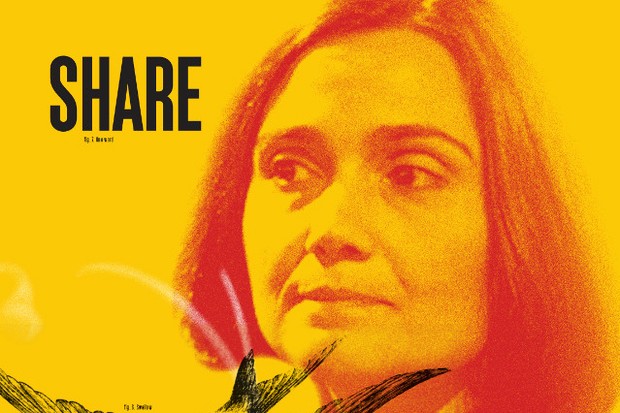Filipa Reis • Producer
"Treat documentary film as if it were fiction; give it the same importance"
- We met up with Filipa Reis, Emerging Producer 2017 from guest country Portugal, to discuss her work with the production company Uma Pedra No Sapato

We met up with Filipa Reis, Emerging Producer 2017 from guest country Portugal, to discuss her work with the production company Uma Pedra no Sapato.
What qualities should a documentary producer have these days?
Filipa Reis: To have as much interest in the film subject as the director and to be artistically in tune with the director. To be able to help choosing the right team for the specific subject. To devise a distribution strategy without overburdening the director with its execution. To treat the film as if it was fiction, giving it the same importance - a film is a film. To think about it as a film that people will still want to see in 20 years.
To what extent do you, as a producer, get involved in the creative process?
To the same extent as the director, in the specific area – that is production.
What projects do you have under way?
Revolução na Alcova (Revolution in the Bedroom) - documentary (90 minutes) directed by José Filipe Costa: 1975, another turbulent year of the Portuguese revolution. Portuguese exiles and curious foreigners flowed into the country that could potentially become “Europe’s Cuba”. The couple Eduarda and José Rabaça came from Germany to the centre of the country with the aim of alphabetizing and bringing cultural animation to the local co-ops. During this period, they recorded several stories in diaries concerning the intimate lives of the locals: sexuality, abortion, homosexuality, and their relationship with foreigners.
We will revisit the memories of both Eduarda and Rabaça, as well as of other Portuguese and foreign volunteers, mostly German, who came to work in the co-ops. Finally, we will re-enact these stories in the present in the recreational clubs, the crop fields and village squares where they took place, in front of their protagonists.
Terra Franca (Upstream) - documentary (90 minutes) directed by Leonor Teles: Upstream sets the action in a fishermen’s village near Lisbon, watered by the Tagus River. The film portrays the life of a solitary man. It is a unique kind of solitude, at peace with oneself, with a sense of belonging to an environment and a positive state of mind that doesn’t involve any other human presence. In opposition to the water, there is the city and the relationships that tie Albertino Lobo to the land, particularly to his wife, Dália, and his daughters, Lúcia and Laura. They are Lobo's turning point. He is the protagonist of this story but they are the reverse angle. Although there’s no open generational conflict, we can see a different problem: Lobo’s craft won’t be passed on to his daughters and they are about to leave home. The film follows the Lobo family over the course of one year, exclusively from Albertino’s perspective, and ends with the marriage of his older daughter.
----------
Emerging Producers is a promotional and educational project, which brings together talented European documentary film producers. The programme is organised and curated by the Jihlava International Documentary Film Festival.
Deadline for applications to the Emerging Producers 2018 edition is 31 March, 2017. Click here.
Did you enjoy reading this article? Please subscribe to our newsletter to receive more stories like this directly in your inbox.
















